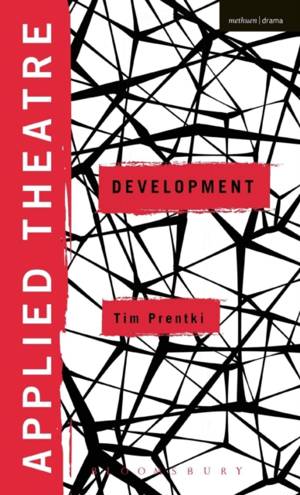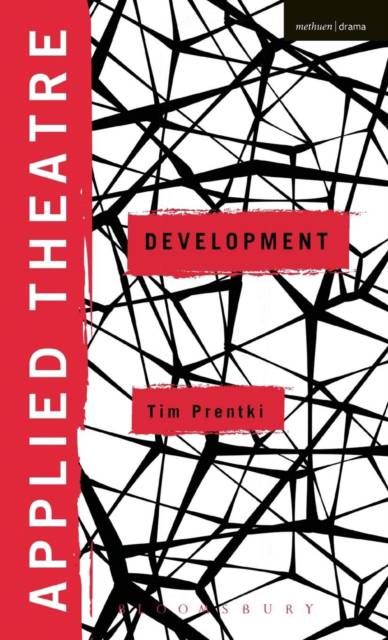
Bedankt voor het vertrouwen het afgelopen jaar! Om jou te bedanken bieden we GRATIS verzending (in België) aan op alles gedurende de hele maand januari.
- Afhalen na 1 uur in een winkel met voorraad
- In januari gratis thuislevering in België
- Ruim aanbod met 7 miljoen producten
Bedankt voor het vertrouwen het afgelopen jaar! Om jou te bedanken bieden we GRATIS verzending (in België) aan op alles gedurende de hele maand januari.
- Afhalen na 1 uur in een winkel met voorraad
- In januari gratis thuislevering in België
- Ruim aanbod met 7 miljoen producten
Zoeken
€ 254,45
+ 508 punten
Uitvoering
Omschrijving
At once both guide book and provocation, this is an indispensable companion for students and practitioners of applied theatre. It addresses all key aspects: principles, origins, politics and aesthetics in a concise and accessible style designed to appeal both to those who have recently discovered this sub-discipline and to experienced practitioners and academics.
Part 1 is divided into two chapters. The first introduces the sub-discipline of Theatre for Development, covering its origins, principles and history, and providing an overview of theatre for development in Western contexts as well as in Africa, Asia, the Indian Subcontinent and Latin America. The second focuses upon theoretical and philosophical issues confronting the discipline and its relationship to contemporary politics, as well as considering its future role.
Part 2 consists of seven chapters contributed by leading figures and current practitioners from around the world and covering a diverse range of themes, methodologies and aesthetic approaches. One chapter offers a series of case studies concerned with sexual health education and HIV prevention, drawn from practitioners working in Vietnam, Papua New Guinea, Southern Africa, and China. Other chapters include studies of intercultural theatre in the Peruvian Amazon; a programme of applied theatre conducted in schools in Canterbury, New Zealand, following the 2010 earthquake; an attempt to reinvigorate a community theatre group in South Brazil; and an exchange between a Guatemalan arts collective and a Dutch youth theatre company, besides others.
Part 1 is divided into two chapters. The first introduces the sub-discipline of Theatre for Development, covering its origins, principles and history, and providing an overview of theatre for development in Western contexts as well as in Africa, Asia, the Indian Subcontinent and Latin America. The second focuses upon theoretical and philosophical issues confronting the discipline and its relationship to contemporary politics, as well as considering its future role.
Part 2 consists of seven chapters contributed by leading figures and current practitioners from around the world and covering a diverse range of themes, methodologies and aesthetic approaches. One chapter offers a series of case studies concerned with sexual health education and HIV prevention, drawn from practitioners working in Vietnam, Papua New Guinea, Southern Africa, and China. Other chapters include studies of intercultural theatre in the Peruvian Amazon; a programme of applied theatre conducted in schools in Canterbury, New Zealand, following the 2010 earthquake; an attempt to reinvigorate a community theatre group in South Brazil; and an exchange between a Guatemalan arts collective and a Dutch youth theatre company, besides others.
Specificaties
Betrokkenen
- Auteur(s):
- Uitgeverij:
Inhoud
- Aantal bladzijden:
- 304
- Taal:
- Engels
- Reeks:
Eigenschappen
- Productcode (EAN):
- 9781472511959
- Verschijningsdatum:
- 23/04/2015
- Uitvoering:
- Hardcover
- Formaat:
- Genaaid
- Afmetingen:
- 140 mm x 216 mm
- Gewicht:
- 494 g

Alleen bij Standaard Boekhandel
+ 508 punten op je klantenkaart van Standaard Boekhandel
Beoordelingen
We publiceren alleen reviews die voldoen aan de voorwaarden voor reviews. Bekijk onze voorwaarden voor reviews.









